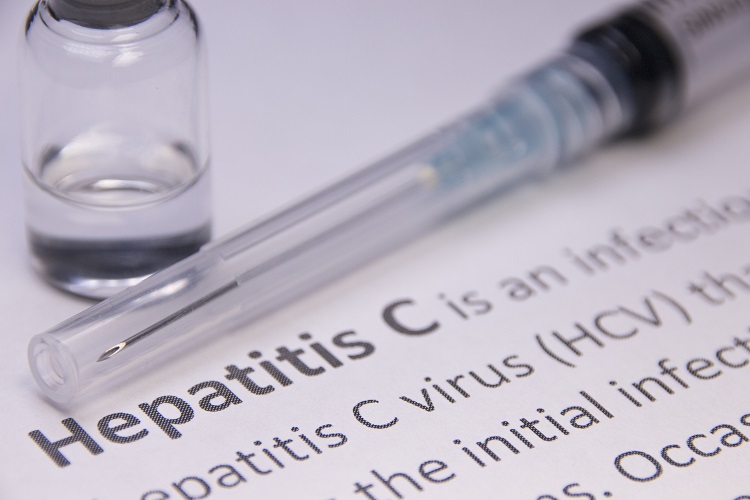26 June 2020
A new PolicyBristol briefing brings together evidence from a range of research projects investigating strategies to reduce hepatitis C transmission among people who inject drugs.

The briefing, Cost effective tools to reduce the spread of the hepatitis C virus in people who inject drugs, brings together evidence from a number of research projects using a variety of research methods, including:
- the effectiveness and cost-effectiveness of providing access to needle and syringe programmes and low dead space syringes as strategies to reduce hepatitis C transmission
- interviews with staff and people who inject drugs to understand how best to introduce detachable low dead space syringes
- a co-design project to produce information materials to support the introduction of low dead space equipment
Worldwide, an estimated 71 million people live with hepatitis C (HCV). Most new infections in the UK and other similar countries are amongst people who inject drugs. NHS England has set a target to eliminate HCV as a public health threat by 2025.
Matthew Hickman, Professor in Public Health and Epidemiology and Co-Director of the NIHR Health Protection Research Unit in Behavioural Science and Evaluation at University of Bristol, who led the research, said:
“It’s vital that local and national government have evidence on the effectiveness and cost-effectiveness of public health interventions, to justify investment and ensure key services are maintained. Our work shows that needle and syringe programmes in general and distribution of low dead space syringes are not only cost-effective but can also be cost saving in relation to prevention of hepatitis C and HCV-related liver disease. We show also how changes to injecting equipment can be successfully implemented in practice, through co-producing health advice to services and service users.”
The policy report outlines the key findings and implications of the research for policy makers, which include:
- Access to needle and syringe programmes (NSP) can reduce the spread of the HCV among people who inject drugs and reduce healthcare costs.
- Low dead space syringes can reduce the spread of blood-borne viruses when injecting equipment is shared.
- When commissioning services, local authorities must aim to increase the reach of needle and syringe programmes and provide funding to promote the use of the lowest dead space syringes suited to service user needs.
- Needle and syringe programmes should offer both fixed and detachable low dead space syringes so that low dead space options are available for a broad range of injecting practices.
- Gradual introduction of detachable low dead space syringes, initially alongside existing equipment, is more likely to be acceptable to people who inject drugs.
- Interventions to increase the use of detachable low dead space syringes should include training for NSP staff, education and information for service users, and monitoring of adverse events.
- Take-up of these interventions can be improved by using peer support networks and engaging with people who inject drugs.
If you would like to find out more about this research or discuss the implications, please contact Dr Clare Thomas, Research Fellow in the National Institute for Health Research (NIHR) Health Protection Research Unit in Behavioural Science and Evaluation at University of Bristol and the NIHR Applied Research Collaboration West.
Download the PolicyBristol briefing (PDF).
Related event
Webinar: Drugs, data, harm reduction and human rights – Thursday, 2 July 2020, 14:00-16:00 (Free)
How can we better gather and use data to develop evidence-based drug policies? How can we reduce the harms caused by current drug policies?
The United Nations Office on Drugs and Crime will release the World Drug Report 2020, its annual assessment of global drug use, production and trade, on 26 June 2020 ( International Day Against Drug Abuse and Illicit Trafficking). This webinar, organised by PolicyBristol will discuss some of the issues raised in the World Drug Report using research carried out by University of Bristol staff and students.
Dr Clare Thomas and Dr Jo Kesten from the NIHR Health Protection Research Unit in Behavioural Science and Evaluation at University of Bristol will be presenting.
Further information
About the NIHR
The National Institute for Health Research (NIHR) is the nation’s largest funder of health and care research. The NIHR:
- funds, supports and delivers high quality research that benefits the NHS, public health and social care
- engages and involves patients, carers and the public in order to improve the reach, quality and impact of research
- attracts, trains and supports the best researchers to tackle the complex health and care challenges of the future
- invests in world-class infrastructure and a skilled delivery workforce to translate discoveries into improved treatments and services
- partners with other public funders, charities and industry to maximise the value of research to patients and the economy.
The NIHR was established in 2006 to improve the health and wealth of the nation through research, and is funded by the Department of Health and Social Care. In addition to its national role, the NIHR supports applied health research for the direct and primary benefit of people in low- and middle-income countries, using UK aid from the UK government.